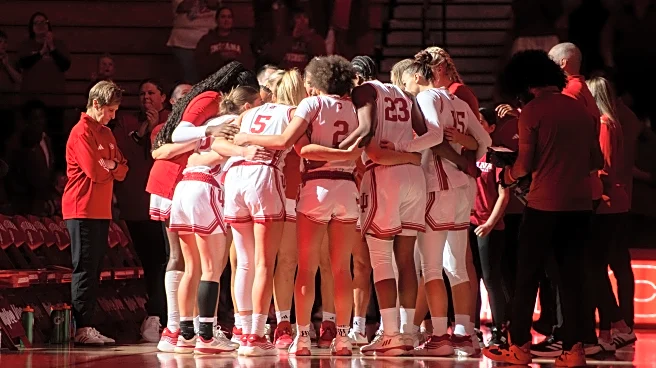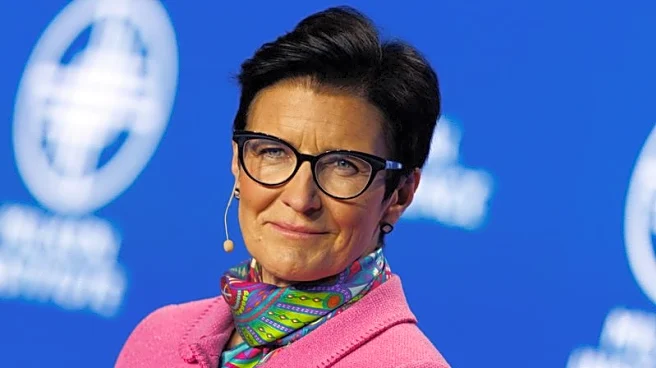What is the story about?
What's Happening?
A lifestyle magazine article discusses various indicators that suggest individuals are aging better than their peers. The article emphasizes that healthy aging is not solely about physical appearance but involves maintaining functional abilities and cognitive flexibility. Key signs include the ability to rise from the floor without assistance, cognitive adaptability, intergenerational friendships, willingness to learn new skills, quality sleep, auditory processing in noisy environments, and planning for the future. These markers are associated with maintaining a holistic integration of bodily systems and a proactive approach to life.
Why It's Important?
Understanding the signs of healthy aging is crucial for individuals and healthcare providers as it shifts the focus from superficial markers to functional and cognitive health. This perspective can influence public health strategies, encouraging activities that promote cognitive flexibility and physical coordination. It highlights the importance of social connections and lifelong learning, which can contribute to mental and emotional well-being. As the population ages, recognizing these signs can help in developing supportive environments and policies that enhance the quality of life for older adults.
What's Next?
The article suggests that individuals should continue engaging in activities that challenge their physical and cognitive abilities. Healthcare providers might incorporate these indicators into wellness programs, promoting exercises that enhance balance and coordination. Social initiatives could focus on fostering intergenerational interactions and lifelong learning opportunities. Future research may explore the biological mechanisms behind these signs, potentially leading to new interventions that support healthy aging.
Beyond the Headlines
The discussion on healthy aging touches on broader cultural attitudes towards aging, challenging stereotypes that equate aging with decline. It encourages a shift towards valuing experience and adaptability, which can influence societal views on the elderly. This perspective may lead to more inclusive policies and practices that recognize the contributions of older adults and support their continued engagement in community life.
















